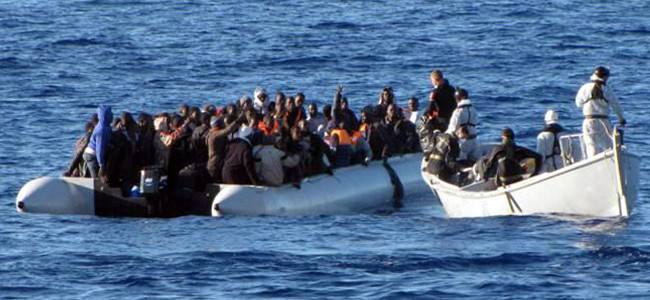
UE must stop migrant deaths at sea
GENEVA (UNHCR) – The UN refugee agency called Thursday for urgent European action to stop rising refugee and migrant deaths at sea, after more than 260 people have died or been reported missing trying to cross the Mediterranean Sea to get to Europe in the last 10 days alone.
Survivors reported disturbing incidents of mass drownings, suffocations and a suspected multiple stabbing, UNHCR said in a statement issued in Geneva. The grim tally brings to some 800 the total number of deaths at sea so far this year, compared to a total of 600 deaths in all of 2013, and 500 in 2012.
“The death of 260 people in less than ten days, in the most horrifying of circumstances, is evidence that the Mediterranean crisis is intensifying,” said António Guterres, the UN High Commissioner for Refugees. “Europeans need to take urgent action to stop this catastrophe getting worse in the second half of 2014.”
The tragedies mark an intensifying crisis on Europe’s shores, as many fleeing Eritrea, Syria and other countries torn by violence seek safety in Europe by risking their lives at sea in the hand of smugglers.
More than 75,000 refugees and migrants arrived in Italy, Greece, Spain and Malta by sea in the first half of 2014 – 25 per cent more than the 60,000 who made the same journey in the whole of 2013, and over three times the 22,500 who arrived in all of 2012.
Italy received the greatest number of arrivals (63,884), followed by Greece (10,080), Spain (1,000) and Malta (227). A further 21,000 refugees and migrants have arrived in Italy since 1 July. The largest numbers came from Eritrea, Syria and Mali. Most left from North Africa, and principally Libya.
Huge numbers of these – nearly 11,000 — are children, and some 6,500 of those, mostly Eritreans, were on their own or separated from their families.
Over the weekend of 19-20 July alone, Italian and Maltese authorities, together with several commercial vessels, rescued 8,000 people.
Guterres praised both Italy and Malta for their efforts, but said European states needed to step up their assistance. He called on governments to strengthen rescue operations, provide swift access to asylum procedures for those in need of protection, and offer legal alternatives to dangerous sea crossings.
Rescued refugees and migrants have reported handing over their life savings to smugglers, in order to travel in unseaworthy and overcrowded dinghies, packed into a few metres of space without food, water or life jackets.
The journey can take between one and four days, depending on the weather, sea and boat conditions. In several incidents, people were stranded for more than two weeks before being rescued.
On 14 July, Italian authorities rescued 12 people 40 miles off the coast of Libya. Survivors said their rubber dinghy had been carrying 121 people. Passengers panicked when it started to deflate on one side, and it capsized. A total of 109 people are missing; one man said he lost his pregnant wife during the incident.
On 15 July, 29 people were found dead from apparent asphyxiation in the hold of a fishing boat. Italian police this week arrested five men on suspicion of murdering and throwing overboard more than 100 migrants attempting to cross from Africa to Europe on that boat. Reports say as many as 131 people are missing and presumed dead after some were stabbed and others thrown overboard when they sought to escape suffocating poisonous fumes below deck.


